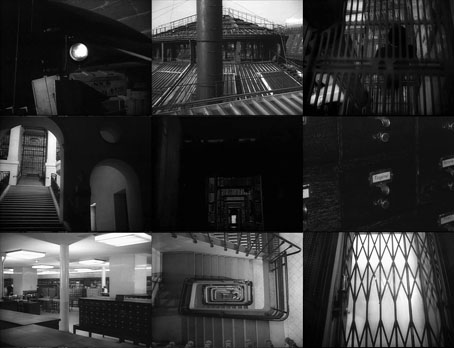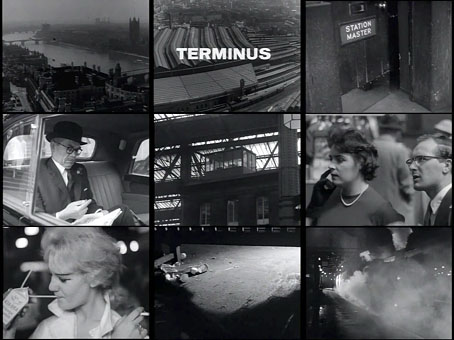Before he directed his first feature, Hiroshima Mon Amour (1959), Alain Resnais had distinguished himself with a succession of short documentary films. His half-hour history of the Holocaust, Nuit et brouillard (1955), has always been the most prominent of these, although as a history it’s since been superseded by Claude Lanzmann’s exhaustive Shoah (1985). Toute la mémoire du monde, a study of the Bibliothèque Nationale in Paris, was made in 1956, and includes a certain Chris Marker (listed as “Chris and Magic Marker”) among its credits. The combination of drifting camera movements, and an interest in architectural space seems like such a precursor of Last Year at Marienbad that the film has found a new life as an extra on Marienbad DVDs. The Criterion people have very generously made it available in HD here.
Previously on { feuilleton }
• Marienbad hauntings
• Terminus by John Schlesinger


